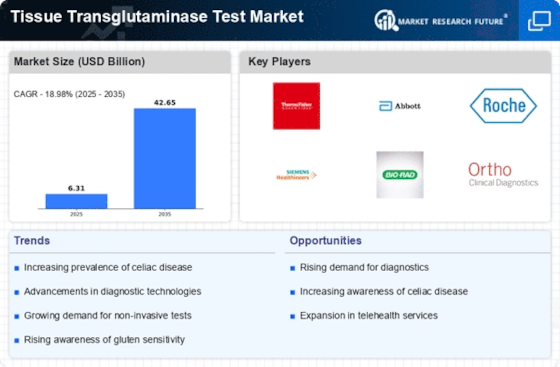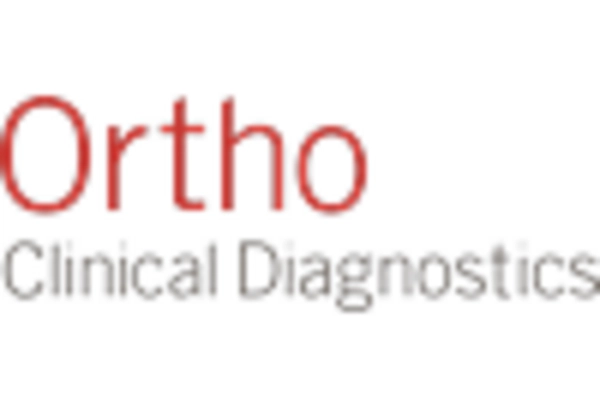Market Analysis
In-depth Analysis of Tissue Transglutaminase Test Market Industry Landscape
The prevalence of celiac disease, an autoimmune disorder triggered by gluten consumption, is on the rise. This has led to an increased demand for diagnostic tools such as the Tissue Transglutaminase (TTG) Test, making it a pivotal factor in market dynamics. The rising trend towards awareness about gluten-related disorders such as celiac disease and non –celiac gluten sensitivity promotes the TTG Test Market. As people realize of gluten-related diseases, the need for a medication that can help in determining or discarding and these conditions rises. Over time, TTG tests have greatly benefitted from continuous technological advancements. Innovations in the assay methodologies such as enzyme linked immunosorbent assays [ELISAs]; and point of care testing (POCT) are resulting to a dynamic market which allow healthcare professionals increases diagnostic capacities. Early diagnosis and treatment in gluten-related disorders have been guiding the TTG Test Market. Accordingly, early identification of celiac disease is highlighted and doctors recommend undertaking routine testing for people with suspected or risky gluten-related symptoms. However, despite test TTG efficiency there remain issues of diagnosis celiac disease then because the possibility is still present to receive a false-negative result. In line with these requirements, the market reacts by introducing novel biomarkers and complementary diagnostic techniques which enhance celiac disease diagnosis accuracy as a means of solving this complex challenge. The adoption of POCT for TTG tests is becoming popular. Since POCT offers results quickly, diagnosis and adjustment of diet can be done fast. The implementation of POCT in the TTG Test Market affects accessibility and convenience for both patients as well as health care professionals.
Regional variations in testing practices and awareness contribute to diverse market dynamics. In some regions, routine TTG testing may be more prevalent due to heightened awareness, while in others, there may be a need for increased education and diagnostic initiatives. Collaborations and partnerships within the healthcare sector are impacting the TTG Test Market. These collaborations involve diagnostic companies, healthcare institutions, and research organizations working together to advance diagnostic technologies and improve the overall diagnostic landscape for gluten-related disorders.


















Leave a Comment